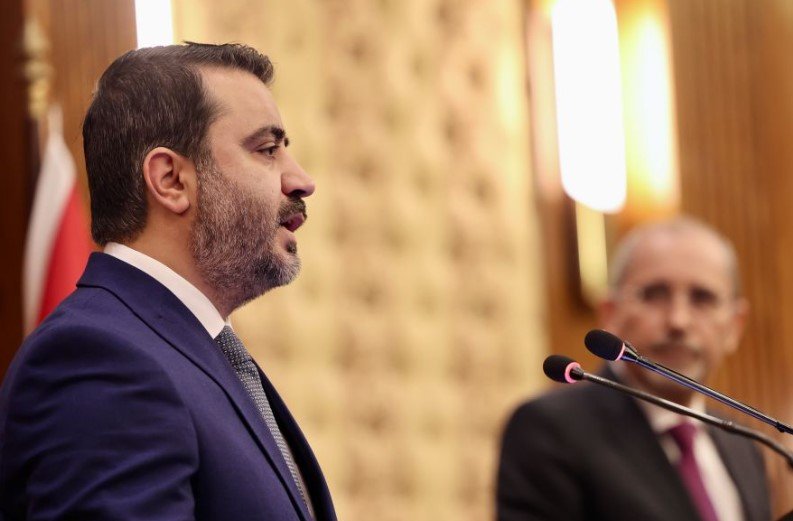The Syrian crisis continues to weigh heavily on the region, and now the US is stepping up diplomatic efforts. Thomas Barrack, the US Special Envoy for Syria, is set to attend a crucial meeting in Amman on August 12. Hosted by Jordan, the talks bring together key players, including Jordan’s Foreign Minister Ayman Safadi and Syrian Foreign Minister Asaad al-Shibani, to tackle the pressing issues facing Syria today.
Barrack’s participation highlights Washington’s continued interest in seeking peaceful solutions for Syria’s prolonged conflict. According to Jordan’s Foreign Ministry, the discussions will zero in on three main objectives: supporting the country’s reconstruction, strengthening the fragile ceasefire in Suwayda province, and finding resolutions to the ongoing crisis there. This meeting follows an earlier round of talks among the same officials held just a few weeks prior, on July 19.
A Diplomatic Push Towards Peace and Stability
The US envoy took to X (formerly Twitter) to express the spirit behind the upcoming talks. Barrack emphasized a shared determination among all parties to shape a future where Syrians can live in peace, security, and prosperity. His statement underscored the importance of protecting the rights of every Syrian citizen and ending the nation’s long-standing conflicts.
“This commitment underscores our collective determination to move toward a future in which Syria and all of its people can live in peace, security, and prosperity,” Barrack wrote, signaling a hopeful tone amid the grim realities on the ground.
While these words sound promising, the challenges remain enormous. The civil war has fractured Syria into numerous factions and regions, each with competing interests and international backers. Jordan’s role as a regional mediator is crucial here, given its geographic proximity and history of hosting refugees from the conflict.

Rising Tensions Complicate Negotiations
Despite ongoing talks, tensions on the ground are escalating, particularly between Damascus and the Syrian Democratic Forces (SDF). The friction intensified following a recent conference of North and East Syrian components held in Hasakah. That gathering pushed for the creation of a decentralized state and adoption of a new constitution recognizing ethnic, religious, and cultural diversity.
Damascus swiftly rejected these proposals, viewing them as threats to Syria’s sovereignty and unity. The refusal added fuel to an already tense atmosphere, complicating diplomatic efforts aimed at national reconciliation.
To add to the volatility, the US military recently reported rocket attacks on its patrol base in Syria. Meanwhile, Jordan intercepted a drone carrying weapons originating from Syria, signaling that instability and armed confrontations remain persistent problems despite diplomatic overtures.
The Stakes: Reconstruction and Ceasefire
Rebuilding Syria is no small feat. Years of conflict have devastated infrastructure, displaced millions, and crippled the economy. The meeting in Amman aims to forge a path toward reconstruction, which many Syrians desperately need. But funding, political will, and security concerns make this task daunting.
Consolidating the ceasefire in Suwayda province stands as a vital component. This southern region has seen flare-ups of violence even as other areas remain relatively quiet. Stabilizing Suwayda is seen as a potential starting point for broader peace efforts across the country.
Here’s a quick snapshot of the key challenges the talks seek to address:
| Issue | Description |
|---|---|
| Reconstruction | Rebuilding infrastructure and restoring basic services |
| Ceasefire Consolidation | Strengthening fragile ceasefires, especially in southern Syria |
| Political Resolution | Finding political frameworks accommodating Syria’s diversity |
Despite the complexity, these objectives represent essential building blocks for any meaningful peace process.
Jordan’s Role and Regional Impact
Jordan has long played a balancing act in the Syrian conflict, dealing with refugee influxes, security threats, and diplomatic initiatives. Hosting these talks signals Amman’s continuing commitment to help stabilize its neighbor.
The country’s Foreign Minister, Ayman Safadi, stressed the importance of cooperation and dialogue during the upcoming meeting. His presence alongside Barrack and al-Shibani illustrates a willingness among these leaders to push for pragmatic solutions, even if tough compromises lie ahead.
Jordan’s stability is directly tied to how Syria’s crisis unfolds. An unstable Syria means ongoing security challenges, refugee pressures, and regional tensions, which Amman is eager to avoid.
What’s Next for Syria?
The upcoming talks won’t magically solve Syria’s deep-rooted issues overnight. Yet, they offer a glimpse of hope—a chance for dialogue amid chaos. The real test will be whether these discussions lead to tangible actions on the ground.
Can the ceasefire hold? Will reconstruction funding materialize? And, perhaps most critically, can the parties find a political formula that respects Syria’s diverse fabric without fracturing the nation further?
Answers remain elusive. But for now, the world watches as the US envoy and regional leaders try to nudge Syria toward calm waters after years of storm.








